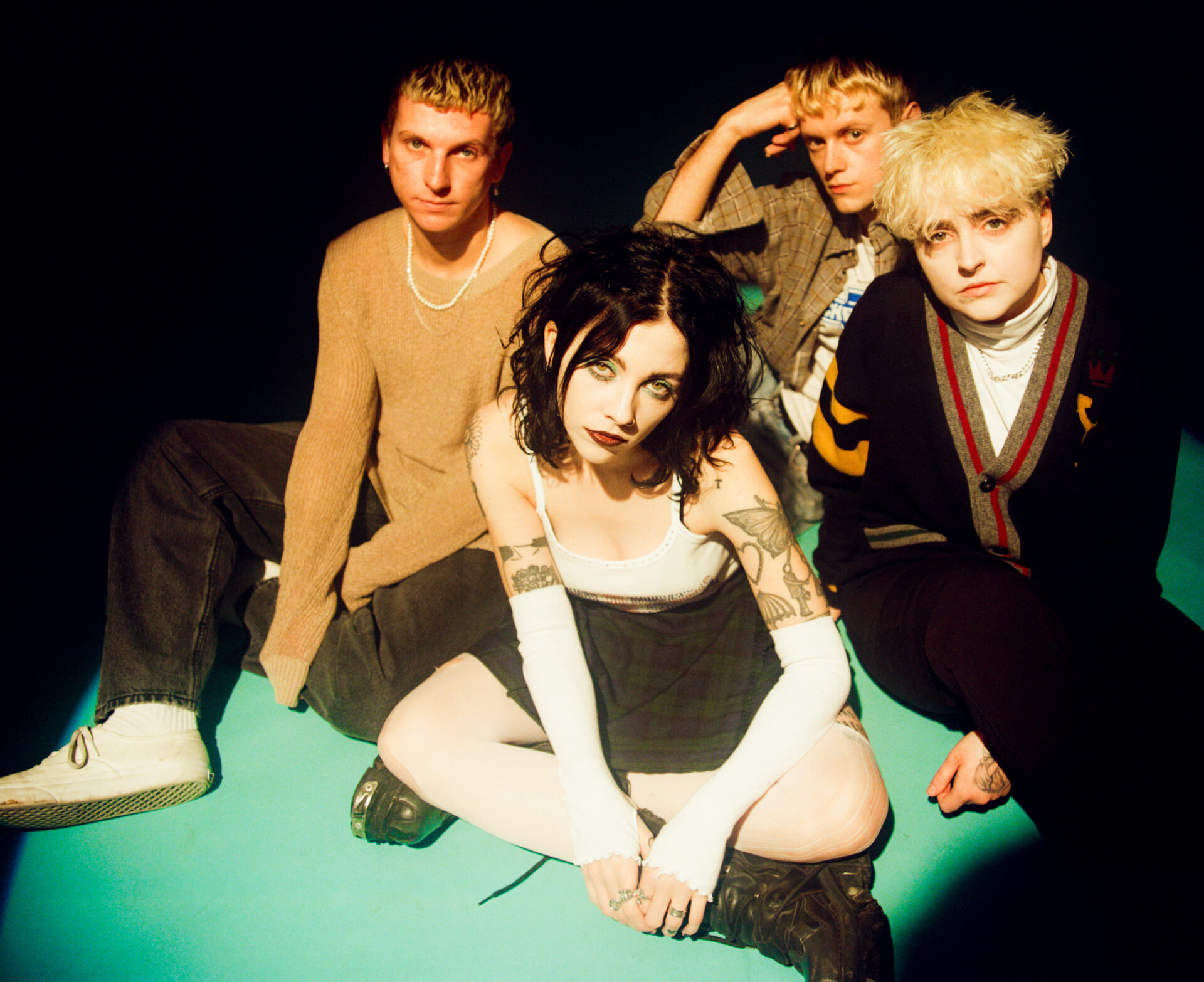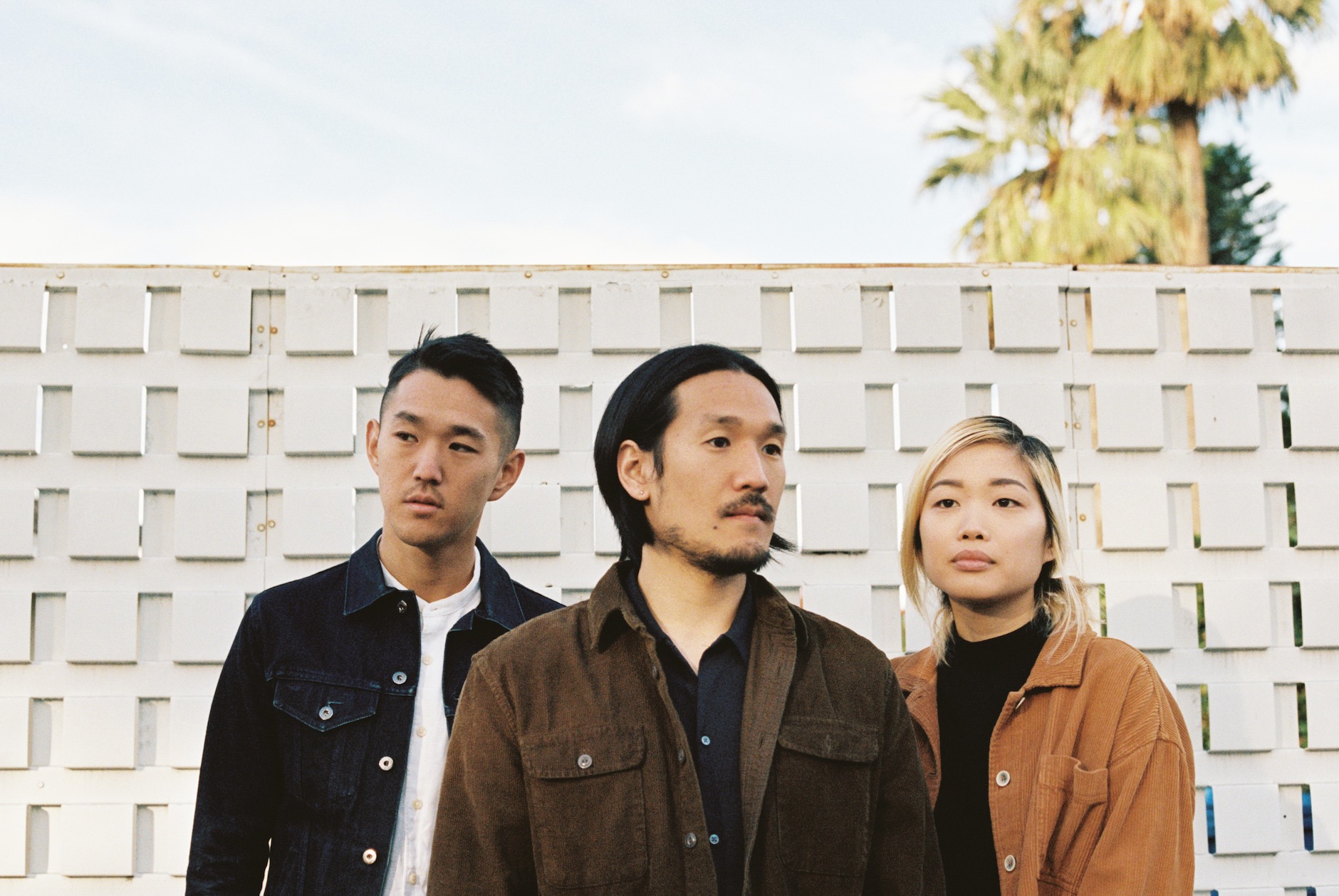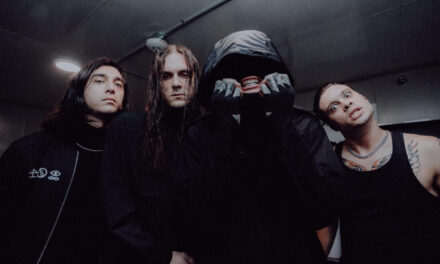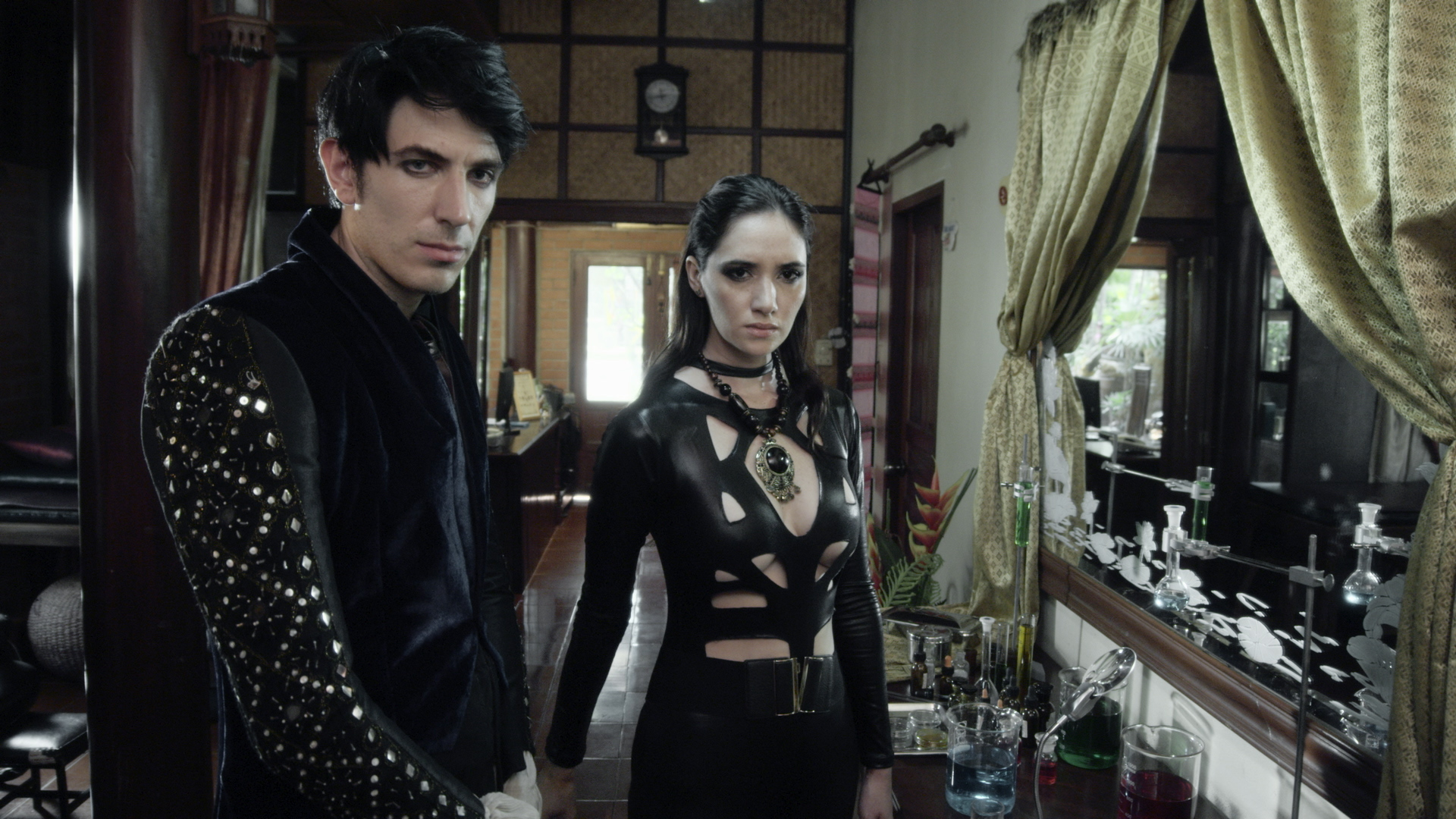Avril Lavigne‘s 2002’s debut album, Let Go featured the singer/songwriter standing in front of the world blurred out behind her. On that album, we went against the glossy, sexualized esthetic that pop music provided with a tie and a punk rock feel. Gave us songs such as ‘Complicated,’ ‘Losing Grip,’ and ‘Sk8er Boi.’ Lead singer/songwriter/guitarist Heather Baron-Gracie of Pale Waves has noted Lavigne as one of her personal heroes. It’s funny how life comes back around, and as we get old, we embody the qualities that make us look up to people. Now Gracie has grown into a person who her younger self would have a poster of.
Who Am I?, the sophomore album offering from Pale Waves has Gracie positioned similarly to Let Go. Gone is the fluorescent red lettering of 2018’s My Mind Makes Noises. Gracie has something to say and is no longer afraid to stand front and center throughout all of it. Who Am I? is an album of liberatory revelations and growth – both for Gracie and the audience. Filled with a new sense of confidence and love from her girlfriend, Kelsi (Luck), Gracie not only embraces her sexuality, but her inner strength as a voice in music. As we were conducting the interview, you can hear in Gracie’s voice the life that this newfound freedom has given her.
Moving away from the 80s new wave style of Noises, Who Am I? embraces much of the alternative influences of 90s alternative rock. There are personal love songs like ‘She’s My Religion’ and ‘Easy’, but also anthems of empowerment like ‘Tomorrow’ and ‘You Don’t Own Me.’ Refreshed and focused, Pale Waves is ready to let audiences into a more intimate version of themselves. I spoke to Gracie about her own process of self-discovery and specific songs on the album that means the most to her.
Who Am I has hints of Avril Lavigne’s Let Go and Under My Skin mixed with Alanis Morissette’s Jagged Little Pill. A song like ‘Head Over Feet,’ specifically for me, came to mind. There are a lot of 90s alternative influences on this album, but it still keeps the essence of what Pale Waves is about intact. Did you approach making Who Am I? any different?
Heather Baron-Gracie: Yeah, the writing process of the album was mainly me and a producer from New Zealand, Sam De Jong. To be honest, we started out most of the songs by dissecting and talking about the concept. I would come into those sessions with an idea, or with lyrics. Then, we would sort of work on what I was sort of talking about further, He would ask me a bunch of questions, and it was like therapy, in a way. We would start out by writing tracks on an acoustic guitar. We started most of the songs without loads of instrumentation. Just really raw sort of elements. Then we developed those ideas. Started laying down drums and the bass and then adding guitar parts, So, we really built it up from not much to having a whole.
The all-encompassing theme about this album is love with optimism behind it. Not only love for someone else, but the love you get when you fully accept who you truly are. What’s interesting is that Who Am I starts off with ‘Change’ which deals with heartbreak. What made you go with that choice?
We did go back and forth about starting the album with ‘Change’ because I feel like this album is really optimistic. When it speaks about love, it speaks about love in a really positive, uplifting way. Whereas change is about heartbreak. I didn’t know if start in the other one change would represent this album too well. But then change musically just really summarizes this album, and a lot of people around me sort of felt like it was the right way to start this album.
So, I kind of trusted them on this one. If it all goes to shit, it’s their fault, hahaha. I’m glad that ‘Change’ on there because I wanted to write an album that wasn’t just for me. It was sort of like, I want everyone to find a track on that album that they could relate to. I didn’t have one about heartbreak. So, I wrote one from not exactly my experience, but from people around me and their experiences.
‘Tomorrow’ is a song that the band has had on their setlist since the latter half of 2019. It sums up a central theme of acceptance. You’re specifically speaking to people in different situations. They may be from a small town or ostracized because of their sexual preference. It feels like you using what you’ve learned to help guide others.
Yeah, I’m really proud of this song. It was actually the first song that sort of created a pathway for the record, This was the first song that I ever wrote off the record, and it naturally came to me. I wanted a song on there that could be there for the fans; you know? A song within itself to sort of comfort people and provide understanding and representation.
I wanted to have a song that is saying, basically; “I know life can be tough. I know life can be difficult. However, it’s obvious that sometimes you need strength from other people. You need to feel comforted and understood.” That’s what ‘Tomorrow’ stands for.
You have said that ‘She’s my Religion’ is the song you are most proud of. It’s a love song in that you speak about the darker parts that your girlfriend has. I like that spin in that we always hear about loving the good. There’s also the bad as well, but that’s why they are your person.
Yeah, exactly. I knew that when I was able and willing to be so open about my sexuality; I didn’t want to do it in a cliché way. Which would be like, “I’m so in love with you.” I have that song on the album. I have ‘Easy,” but I didn’t want that to be the song that was discussing my sexuality.
I knew I had to write it smartly. A way that sort of really represented love, in a sincere way. I believe to love someone entirely; you have to take every aspect of them. Falling in love with all the dark parts. When you commit to someone, your sort of taking on all of their baggage too, and you have to love them for it.
Yes. Love uplifts you and transforms you, to an extent. There are lines in ‘Easy’ that stood out to me. “I’ve not really changed much at all/still being me/still wearing the same clothes.” It feels like this relationship more so brought out the independence of Heather instead of changing you completely.
Oh, yeah, I’m still me at my core. I’m very true to myself. This career can change many people, but it’s definitely not changed me. I’m still a northern girl. I’m still very down to earth. Love has changed me in ways, but it’s not changed the core of me. I’m a very strong woman and I know who I am, to the best extent anyway.
I feel like as human beings, you sort of never truly understand or can really gather exactly who you are. Just because we’re evolving every day. But yeah, love has brought the best aspects out of me and taught me a lot of things to fall in love with parts that I used to hate of myself. I think that’s what love should do. It should make you a better version of yourself.
‘You Don’t Own Me’ would be considered the heaviest song on the record. You tear up any pre-conceived notion of you to shreds. I would imagine there were some expectations after My Mind Makes Noises took off the way it did. Unfortunately, the music industry and society still have adverse reactions to women taking ownership of themselves and their craft. I appreciate that you grin (and metaphorically flip off) the face of all of that.
Oh, yeah. They just label them a bitch. Well, this song came about because I found myself quite shy of being judged when I was writing the first album. I wasn’t ready to be judged. No one was ready to sort of speak out about things that would cause a lot of conversation or backlash, etc. Whereas on this record, you know, it’s been a few years. I’ve sort of become a lot more comfortable in my own skin. I know what I want to speak about, and I’m ready to embrace judgment from others. Or I’m ready to not shy away from things that need to be said in society.
I think ‘You Don’t Know Me’ is one of the most important songs on this record. I have the confidence to speak about these matters and I have a platform to do it. I’d be stupid if I didn’t start speaking up about it because I’ve experienced so many things in this industry. Or just in life for being a woman. So I have a lot to say on this subject. In terms of labels, the outside world, or the press media, maybe putting pressure on the second record to be different or to be even more amazing – I didn’t really sort of pay attention to that. To be honest, I didn’t really feel that pressure.
I knew that is obviously a thing, but at the end of the day, I just wrote music that I thought made for the best record. Maybe not the older generation, but my generation and the younger generation, they will, they will, they will be on my side. If you’re not on my side, then we’re not going to get along. If you still have that sort of way of traditionally thinking that a woman is made to be a man’s wife and to raise his children, etc. Then, yeah, we’re definitely going to get into a fight. I feel really empowered by this song and I hope a lot of other women do. I hope people pay attention to this song in particular of this record because it’s really important what I’m saying. It represents women, and it represents that we will not stop fighting for equality.
‘Who Am I’ is the last and longest song on the record. You spend the process of the entire album figuring out who this version has grown into and you find it. However, there’s that vulnerable moment where you speak to you having to go through a lot of tough things to get to this point in time.
It just felt fitting. It felt like ‘Who Am I’ couldn’t be put anywhere else within this placement of the record. I had had it in various spots, I had it in the middle, I had it towards the end, but not at the end. I had it at the beginning. Not at the very top, but like the third song in, and it just felt oddly place. It felt like it threw everything off. ‘Who Am I,’ for me really sort of summarizes the record. It summarizes my journey of realizing that I want to change and want to become the best version of myself. So, it didn’t feel right to close the album on anything else – it needed to be at the very end. The recording process of that song was really nice.
It was only me, the producer, Rich Costey, and Kelsi, my girlfriend in the studio when I was recording. I tend to not like many people in the studio when I’m recording vocals just because it’s such a vulnerable moment. I like to get everyone out of the studio because you never know what’s going to come out of your voice. You open your mouth, and you sing. It’s not like playing the guitar where you know what’s going on the fretboard. I feel like singing for me is very vulnerable and personal. That’s just what it is. Feeling vulnerable, but then at the same time really empowered.
Photo Credit: Jordan Curtis Hughes













